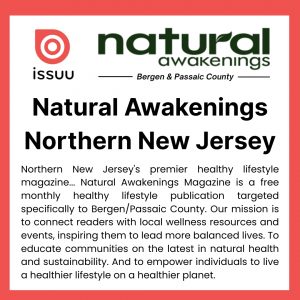Heartburn May Just be the Tip of the Iceberg
by Doug Pucci
At some point, most people experience the uncomfortable feeling of heartburn. Although typically associated with a burning feeling in the chest or throat, there are other symptoms that can be experienced as well, including difficulty swallowing, chest or back pain, chronic hoarseness or cough, sore throat or the feeling of food getting caught in the throat.
Heartburn is caused by stomach acid that is released into the esophagus when the lower esophageal sphincter (LES) muscular valve malfunctions and remains open. When this occurs, it allows stomach acid to flow back into the esophagus, causing irritation and that burning feeling. This discomfort can last from a few minutes to hours and can interfere with sleep, focus and activities, so to get immediate relief, most people automatically reach for an over-the-counter (OTC) heartburn medication. Unfortunately, heartburn has become so commonplace that most people don’t realize it’s a symptom and not a normal part of life.
The problem with taking OTC heartburn medication is that it alleviates heartburn symptoms, but does not fix the malfunction. In fact, it promotes the valve to remain open and suppresses normal stomach acid production to such an extent that eventually OTCs no longer work. There are several factors that can trigger heartburn, and they can be different for everyone. Individual triggers may include overeating, food with high acid content, smoking, caffeine, alcohol, food allergies and reactions to the medications themselves.
Because OTC relief can easily be found through seemingly harmless antacids like Tums, Alka-Seltzer and Mylanta, as well as formerly prescription-only proton pump inhibitors (PPI) like Nexium, Prevacid, Zantac and Prilosec, they’re thought of as safe “go-to” ways of preventing or relieving heartburn. This couldn’t be further from the truth. Heartburn medication, including non-prescription types, come with their own set of health risks, especially for chronic users. Known health risks include acute kidney injury, chronic kidney disease, vitamin B12 or magnesium deficiency, higher risk of certain bacterial infections, bone fractures, osteoporosis, pneumonia, dementia, heart problems and reduction in calcium absorption.
Occasional heartburn is one thing, but persistent heartburn—gastroesophageal reflux disease (GERD)—can lead to esophageal cancer and may be a symptom of an underlying health issue like an H. pylori imbalance or too little stomach acid. Doctors typically prescribe PPIs to patients with GERD to lessen the symptoms, thereby temporarily restoring their quality of life and possibly reducing the risk of esophageal cancer. However, this is only treating the symptom; it’s far more important to diagnose and heal the underlying cause of GERD. If an insufficient amount of stomach acid is being produced, patients are prone to even more serious conditions such as food poisoning, infections of the digestive system and nutritional deficiencies.
Rather than taking medications to alleviate heartburn, a better strategy is to prevent heartburn through dietary changes, reducing stress and adding or increasing probiotics, HCLs and pancreatic enzymes to improve digestion. By restoring gut health and eliminating personal triggers, we can end heartburn safely and naturally while improving our immune system, microbiome and overall health.
For questions or appointments, call 201-261-5430. Hear Dr. Pucci’s interview podcast at PlanetNJ.com or visit GetWell-Now.com and request an information packet. For questions or appointments, call 201-261-5430.





























